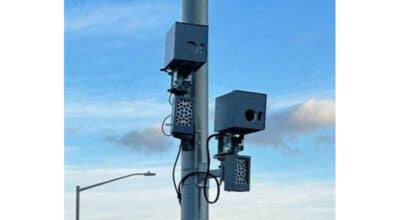A worthwhile partnership
Published 12:06 pm Friday, December 29, 2017
It would be hard to be a well-informed American these days without having read about the mounting student loan debt crisis in the United States, even if it hasn’t affected you personally.
About 44 million Americans owe more than $1.48 trillion in student loan debt. That’s a massive $620 billion more than the total U.S. credit card debt. The average graduate has about $37,172 in student loan debt.
About 11 percent of borrowers are at least 90 days delinquent on their payments.
These massive debt amounts aren’t all being accumulated for standard four-year degrees. About 40 percent of the total student loan debt was used to finance graduate and professional degrees, including Master of Business Administration, law degrees and medical degrees.
On an individual level, student loan debt cripples graduates’ ability to get married, start a family, start a business, buy a home, take a risk on a cross-country job or gain the kind of informal education and fulfillment that come with traveling the world, doing missions work or volunteering for a nonprofit organization.
With these statistics at the top of their minds, many of today’s college students are doing everything they can to avoid graduating with debt as much as possible.
Many of them are attending community college for part of their education, living at home and working multiple jobs while they attend school. Some of them may even be forgoing basic needs.
And, while community college is less expensive than a four-year college or university, some students may still be struggling to pay tuition, buy food and meet other necessities.
So the partnership between Paul D. Camp Community College and the Foodbank of Southeastern Virginia and the Eastern Shore that recently helped secure extra food for students, as well as staff and the community at large, was worthwhile and well timed.
President Dr. Dan Lufkin formed the foodbank committee this fall to address food insecurity among students and staff, as well as in the community. Members met with foodbank representatives several times during the semester to discuss a partnership.
But as final exams approached, the committee noticed the number of students requesting food increased. The college made a request for emergency food rations and got 50 bags of food, which were divided among the college’s three sites.
Dr. Sandra Walker, college success coach and a member of the committee, said the reason for the partnership and the emergency request is simple.
“A student cannot learn if he or she is hungry. If we’re trying to help students reach their academic and personal goals, they can’t do that if they’re hungry.”




